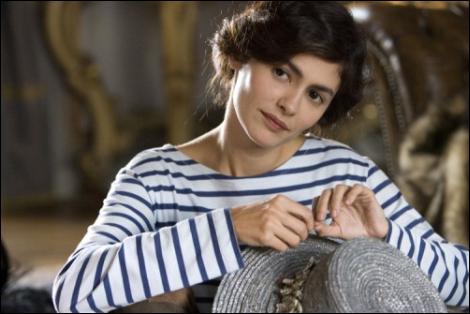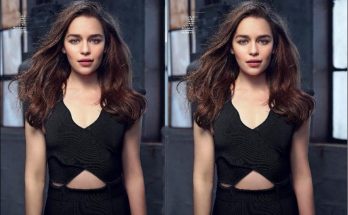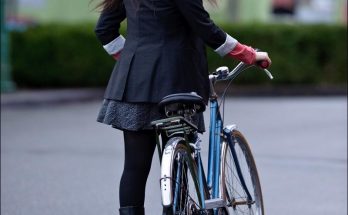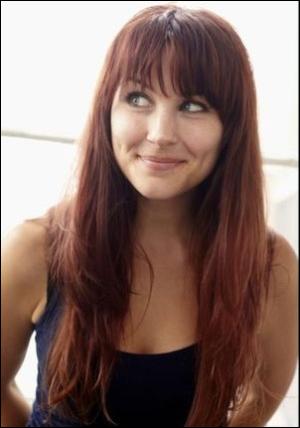How did you feel playing Coco Chanel as a young woman?
Audrey Tautou: I think I feel very lucky because she’s maybe one of the most brilliant French women ever. She had such a unique character and extraordinary temperament that was very enriching to have the opportunity to play her and know her a bit more.
How did you prepare for the part?
Audrey Tautou: Well, I read a lot. I read some books and biographies and looked at photos and videos and of course had an idea about the main aspects of the way she was behaving, I would say, on the exterior. Also, the main aspects of her personality. I tried to find everything I could obtain about when she was very young because there was just a few information about her. I tried to guess what the aspects of her personality that she kept having, and which were the ones she lost with the success and the tragedy she lived and the one who appears with the time. It was trying to find the balance.
How is it different playing a historical character as opposed to a fictional one?
Audrey Tautou: Well, the interesting thing in this movie is that I was at the frontier between the famous Chanel and the unknown one. So I can say that the famous one, it’s like the regular way of preparing for a part. You just observe the material. You observe her and you try to recreate her as close as possible from what you see. On the other side, we were showing a very unknown Chanel and so it was not a fictional character but it was a mystery. So that’s how I could give my own little touch. That was very interesting for me, mixing those two elements.
Do you have any personality traits in common with Chanel?
Audrey Tautou: Well, I think that I’m kind of strong minded, too. I’m very, very attentive to keep my independence. Those things are important.
How much did the costumes inform you or restrict you?
Audrey Tautou: That was very important because the costume is Chanel. It’s the exact reflection of her personality, of her singularity, of her desire to be free and be equal with men and to be different and to be looked at, to be seen. So that was really, really important and a very useful thing, of course. Also, when you watch the pictures of Chanel, even when she was very young and before she was famous, you can see that she has a real charisma. It was very important that we can see how charismatic she was even when she was young. The costumes helped I think a lot.
Can you talk about working with Alessandro Nivola and Benoit Poelvoorde?
Audrey Tautou: It was great. I really admire and have admired Benoit Poelvoorde for a long time. He’s an amazing actor and I really enjoyed working with him. I was very charmed by Alessandro because he did amazing work. He’s an American actor and he plays an English man who’s speaking French. So he had some huge work and both are very, very different, very complimentary in fact. They have total opposite energy. I think like in this triangle relationship that it was very interesting.
Can you talk about riding a horse in the film?
Audrey Tautou: Well, in fact I learned riding a horse when I was a child but I hadn’t practiced in a long time. So I had to get training. It was great, but they had given me a very nervous horse. Beautiful. The white one. Very beautiful but very…yeah. At first it was great and easy, but we had to do…Anne wanted us to do a scene when he’s giving me the horse lesson and she wanted us to do this scene galloping. When I got on the set I discovered that the location was like a highway of lawn. She wanted us to be galloping and doing the scene. With my horse who was very ready I couldn’t do the scene, but it was great, a great experience.
Has it made you not want to ride horses?
Audrey Tautou: No, not at all. I had those scenes and it was fine, but I got really, really petrified. I was like, ‘No way. I’m not.’
What’s different about working on a French production versus an American one?
Audrey Tautou: Well, the work itself is exactly the same but you just have to do your work to act. The only difference is about the means of production. The crew is more important, there are more people and the organization is more square.
Did you get to keep any of the clothes from this film?
Audrey Tautou: I’ve been asked this question a few times, but no. I couldn’t because all the costumes end up in Chanel’s museum. I tried to get a jacket and maybe in a few months they will give it to me but I don’t know.
Was Chanel a feminist?
Audrey Tautou: I don’t think she would call herself a feminist but by the value that she embodied she was a feminist, because when you want to have the same freedom as a man and when you don’t want to depend on them and please them at any cost, that’s a very feminist way of thinking. She was a woman of the new century.
What do you think audiences can learn from her struggle?
Audrey Tautou: Maybe that if you’re determined you can choose your destiny and not be weak or to be subjected to your destiny. I think that’s important.
I talked to a man who saw the movie and felt that she took advantage of men.
Audrey Tautou: [laughs] That’s a man reaction.
Do you think that behavior of hers will be a problem for modern audiences?
Audrey Tautou: No, but of course she did some compromise to stay in a place in Balsan’s house and stay in this aristocratic world but she didn’t have any choice. She’d just been very clever because a woman’s position at this moment, they was just nothing. Especially her, the status and the social classes were very separate and you couldn’t…there are still classes today but there’s more mobility and mixing between classes. So of course she took advantage of Balsan but he accepted it. He took advantage of her, too. Personally I really don’t see any problem with that.
Some people thought it was a sad ending. Do you see it as that or that she was completely happy?
Audrey Tautou: Well, it’s life. There’s no life that’s perfect, but her life was full of success and tragedy. It’s true that Boy Capel who was really the love of her life, as she said, without his trust maybe she wouldn’t have become Chanel. So of course for romantic spirits it’s sad and for success or achievements…there’s a good and a bad side, either way you can see it. Either it’s great that she met this man and he enabled her to rise to where she was going or that it’s sad that it happened this way. But what’s interesting is the fragility of her destiny because if Boy had married her we can easily imagined that maybe she would’ve spent her life in England and maybe she wouldn’t have ever become Chanel, Coco Chanel. That’s also the despair which made her work so hard afterwards. But she had a life full of…she met a lot of tragedies. She experienced many tragedies.
Is there a compromise as an actress, that you travel and work a lot, that you make in not seeing your friends and family?
Audrey Tautou: No, no, no. I don’t think so. I don’t suffer in my work. I don’t want to suffer because that’s not my way. If I suffered I would do something else. It’s true that for this part she was in a psychology called chaos for me. From my point of view she was always in a kind of anger and full of doubt and determined and I would say she was lost. So this violence of feelings, all this contrast was heavy to carry. But that didn’t make me suffer and I don’t miss my family when I work.
Do you watch any of the American shows like ‘America’s Next Top Model’ or ‘Project Runway’ or is there something like that in France?
Audrey Tautou: No, because I don’t really watch TV, in fact. I would’ve never said that this morning, but no, I don’t watch TV. It’s too depressing.
Do you wear Chanel?
Audrey Tautou: Yeah. Not now, but yes, I love Chanel clothes.
Views: 183



